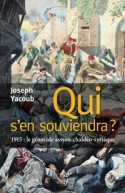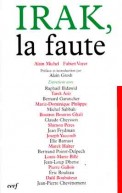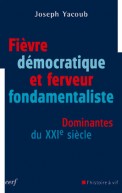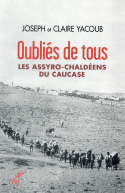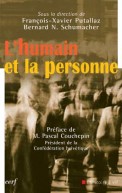
L'humanisme réinventé
Collection L'Histoire à vif
224 pages - mai 2012
24,20€
En cette période de dialogue et de rapprochement des cultures, alors que de nombreuses études montrent les liens et les convergences entre les civilisations et les cultures, leurs emprunts réciproques, contribuant à renforcer ainsi le concept d'humanisme, il est très important d'éclairer ces débats par des travaux antérieurs, entrepris il y a déjà soixante-cinq ans, par l'Unesco au lendemain de sa création. Dans le cadre de son enseignement et de ses recherches, Joseph Yacoub a été amené à découvrir la richesse des enquêtes de l'Unesco et de ses déclarations sur les fondements philosophiques des droits de l'homme, les rapports entre les civilisations, la démocratie, les relations philosophiques et culturelles entre l'Orient et l'Occident de 1946 à 1952. Pour compléter cette étude, la deuxième partie de l'ouvrage, à la fois théorique et pratique, traite des liens entre l'universel et le particulier. L'auteur aborde les concepts de culture, de diversité culturelle et de droits de l'homme en illustrant son propos d'un exemple concret : la Mésopotamie ancienne et syriaque. Il révèle ainsi des antécédents au débat en cours sur l'humanisme et montre que les valeurs humanistes n'ont pas de frontières : elles ont été partagées par toutes les civilisations.
--
In this period of dialogue and cultural rapprochement, when countless studies have demonstrated the links and convergences between civilisations and cultures and their reciprocal borrowings, thereby reinforcing the concept of humanism, it is very important to view these discussions in the light of earlier research undertaken by UNESCO shortly after its creation. In the course of his teaching and research, Joseph Yacoub has uncovered a wealth of UNESCO’s surveys and declarations on the philosophical foundations of human rights, the rapport between civilisations, democracy, and the philosophical and cultural relations between East and West from 1946 to 1952. As a complement to this study, the second part of this book, both theoretical and practical, treats the links between the universal and the particular. The author tackles the concepts of culture, cultural diversity and human rights illustrating his remarks with a concrete example: ancient and Syriac Mesopotamia. In this way, he reveals the antecedents to the current debate on humanism and demonstrates that humanist values have no frontiers, having been shared by every civilisation.
--
In this period of dialogue and cultural rapprochement, when countless studies have demonstrated the links and convergences between civilisations and cultures and their reciprocal borrowings, thereby reinforcing the concept of humanism, it is very important to view these discussions in the light of earlier research undertaken by UNESCO shortly after its creation. In the course of his teaching and research, Joseph Yacoub has uncovered a wealth of UNESCO’s surveys and declarations on the philosophical foundations of human rights, the rapport between civilisations, democracy, and the philosophical and cultural relations between East and West from 1946 to 1952. As a complement to this study, the second part of this book, both theoretical and practical, treats the links between the universal and the particular. The author tackles the concepts of culture, cultural diversity and human rights illustrating his remarks with a concrete example: ancient and Syriac Mesopotamia. In this way, he reveals the antecedents to the current debate on humanism and demonstrates that humanist values have no frontiers, having been shared by every civilisation.
- Dimensions : 135x215x15
- ISBN : 9782204090056
- Poids : 300 grammes
Avec la collaboration de : Francesco Follo
DU MÊME AUTEUR
Oubliés de tous
Les assyro-chaldéens du Causase
de Joseph Yacoub ,Claire Yacoub
320 pages - sept. 2015
> VOIR TOUS LES LIVRES DE l'AUTEUR

